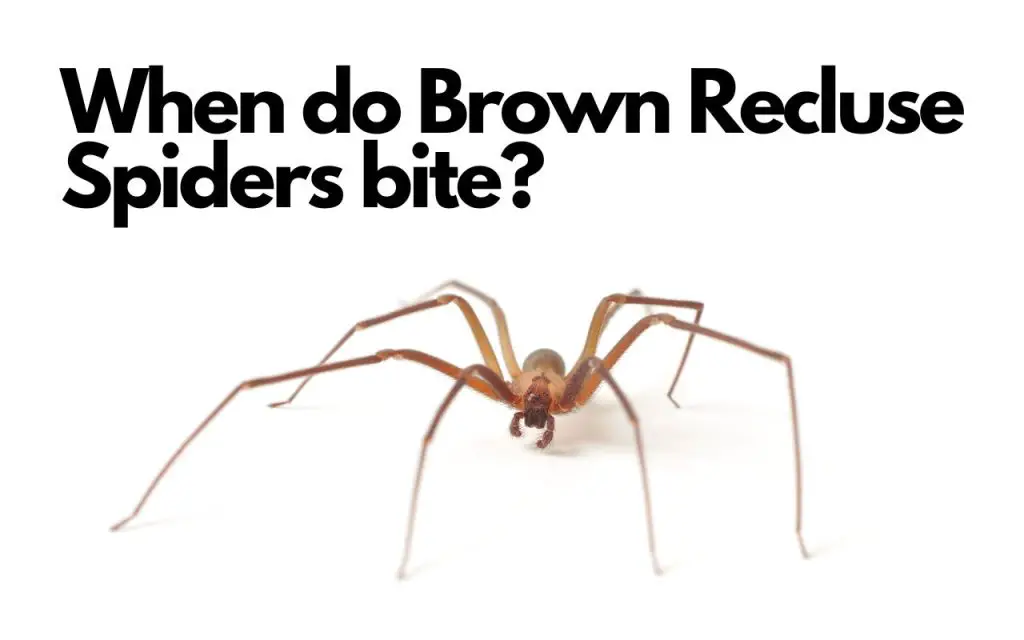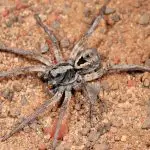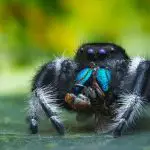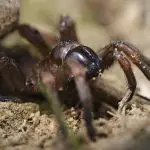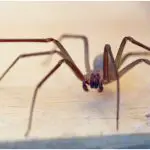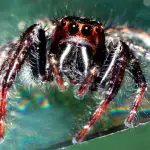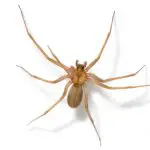Have you ever wondered when do Brown Recluse Spiders bite? Well, you’re not alone. This is a common concern from people who live within their areas of distribution. Contrary to popular belief, Recluse Spiders almost always bite when we accidentally step on them or squish them. They almost never bite out of aggression.
In this post, we’ll take a look at what their bites look like and how they progress. We’ll also go over how to avoid their bites in the first place.
Remember, they generally don’t want to bite – it’s an accident that happens from us being in the same space as them. Prevention is always the best option! Let’s take a look…
When and Why Brown Recluse Spiders Bite
Brown recluse spiders, despite their notoriety, are typically non-aggressive. They’re called “recluse” for a reason — they prefer to stay out of sight, avoiding interaction whenever possible. Bites usually occur when they feel trapped or threatened, such as when someone accidentally presses against them.
As nocturnal creatures, they’re more active during the night, meaning most bites occur then. However, it’s important to note that these incidents are relatively rare, as brown recluses aren’t typically found on beds or in clothing.
Brown Recluse Spider Bite Stages
Understanding the progression of a brown recluse spider bite is crucial to seeking timely medical intervention. Here are the typical stages:
- Initial Bite: At first, the bite may go unnoticed or feel like a minor sting.
- Reddening and Swelling: Within a few hours, the site often becomes red, swollen, and tender.
- Development of a Blister: A small, fluid-filled blister usually forms within 6-12 hours.
- Necrosis Stage: If untreated, tissue around the bite may start to break down and die (necrosis) in a few days, forming an ulcer.
Brown Recluse Bite Day 1
During the first 24 hours, the bite site generally develops a reddish, swollen area with a small, white blister in the center. Some people might also experience systemic symptoms like fever, chills, rash, or joint pain.
What Does a Brown Recluse Bite Look Like After 24 Hours?
After 24 hours, the blister often ruptures, leading to the formation of an ulcer. The skin surrounding the bite might darken due to tissue death. It’s vital to seek medical help at this point to avoid severe skin damage.
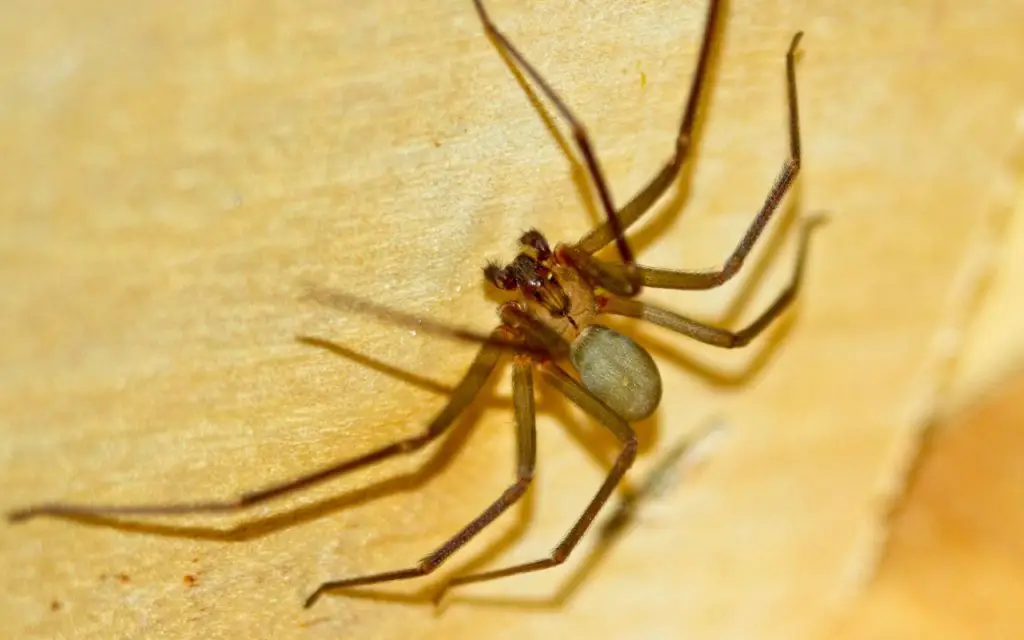
Brown Recluse Spider Bite Necrosis
Necrosis (tissue death) is a rare but severe consequence of brown recluse spider bites. It usually starts around 72 hours after the bite, characterized by a growing ulcer with a purple or black center. It’s vital to get medical attention if you suspect necrosis, as it might require surgical treatment.
When it comes to necrosis, there’s actually quite a big debate. Whilst Recluse Spiders do have reasonably strong venom, many entomologists doubt it is actually strong enough to cause necrosis.
Instead, they hypothesise that the necrosis we often see associated with spider bites is in fact a bacterial infection due to scratching the area. In some cases, there may have been no spider bite at all – it could literally be from any bug bite that got infected.
Still, it’s important to remember that scientists have studied and corroborated the phenomenon of Recluse venom necrosis.
Either point of view may be correct, or it could be a mix of the two. Whatever the case, it really doesn’t change the fact that if you see any lesion developing, you should contact a medical professional!
How to Draw Poison Out of a Brown Recluse Spider Bite
Despite various home remedies circulating online, it’s essential to note that there is no scientifically proven method to “draw out” venom from a spider bite at home. Instead, immediate medical attention is needed. Ice can be applied to reduce swelling and pain until you reach a healthcare provider.
Around the world, their are a lot of “venom extractor kits” available. As a zoologist, let me just tell you that I firmly believe that these kits are both innefective, and potentially dangerous. Don’t waste your money – just call a doctor instead.
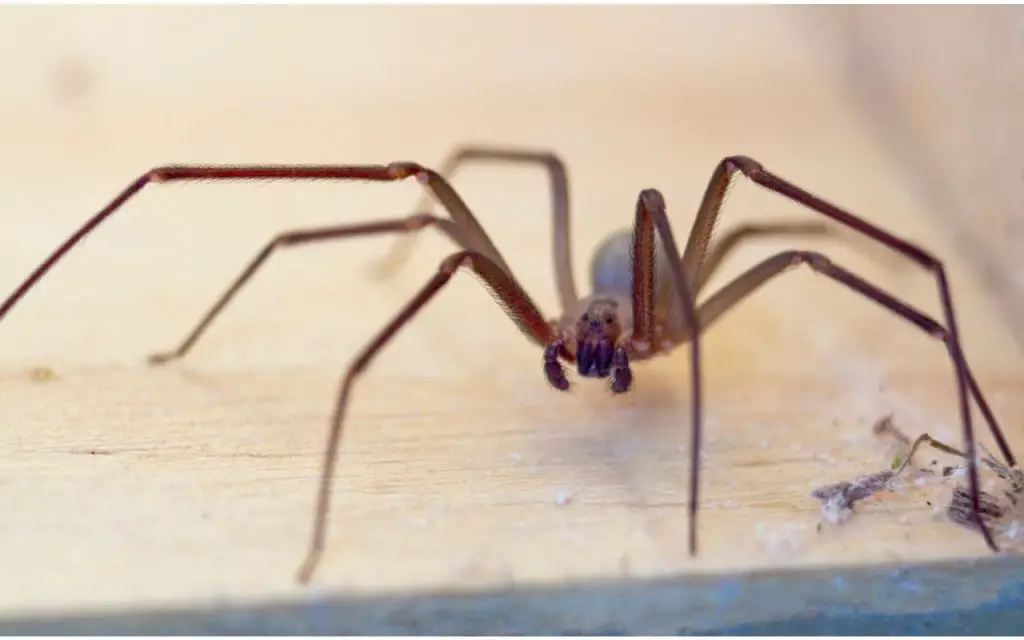
How Long Does It Take for a Brown Recluse Bite to Kill You?
Fortunately, death from a brown recluse spider bite is extremely rare. While the spider’s venom can cause significant local skin damage, it’s usually not life-threatening. However, complications can arise if the bite is left untreated or in individuals with weakened immune systems.
Brown Recluse Bite Treatment
Here’s a general outline of medical treatment for brown recluse spider bites:
| Stage | Treatment |
|---|---|
| Initial Bite | Clean the wound with mild soap and water. Apply ice to minimize swelling. |
| Reddening and Swelling | Over-the-counter pain medications and antihistamines may be used to reduce pain and itching. |
| Development of a Blister | Seek medical attention. A healthcare provider may prescribe antibiotics to prevent infection. |
| Necrosis Stage | A healthcare provider might use medications to limit necrosis. In severe cases, surgery may be required to remove dead tissue. |
How to Avoid Being Bitten
Preventing brown recluse spider bites involves some simple, proactive measures:
- Limiting Their Habitat: Clean up clutter in basements, garages, and outdoors to reduce their potential habitats.
- Wearing Protective Clothing: If you’re working in areas where these spiders may reside, wear long sleeves, gloves, and boots.
- Inspect and Shake Out Clothing or Shoes: Before dressing or putting on shoes, especially those left in the garage or basement, give them a good shake.
When do Brown Recluse spiders bite? Final Thoughts…
While the brown recluse spider’s bite can be serious, it’s crucial to remember that these creatures aren’t as menacing as often perceived. They’re not just a fascinating subject of study for us arachnid lovers, they’re also important predators that help control pests. However, should a bite occur, prompt medical attention is the best course of action.
Remember, knowledge is the best defense against fear. So, keep learning and keep exploring the intriguing world of spiders!
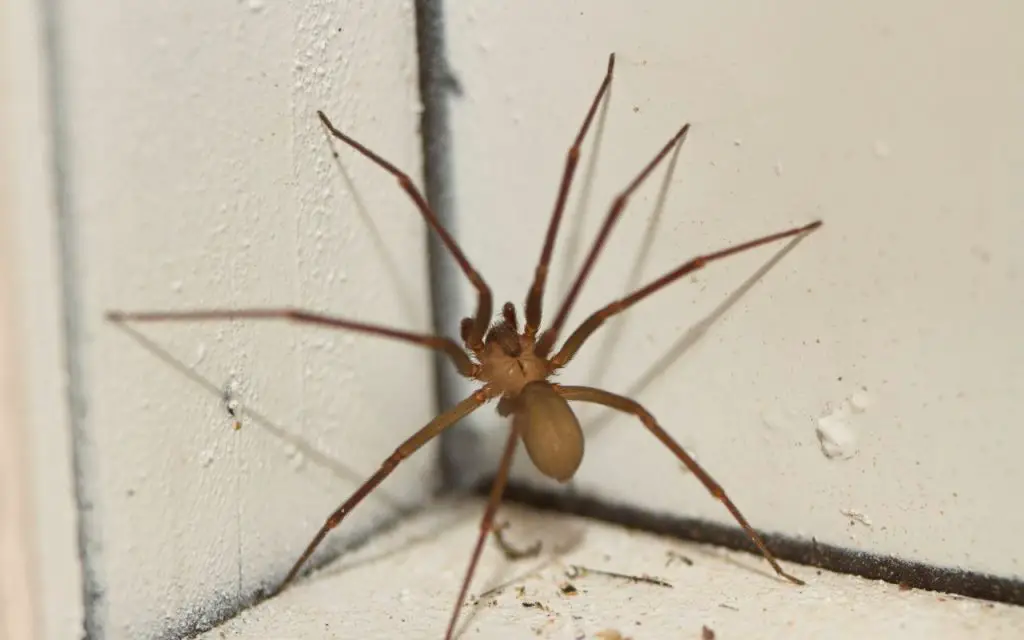
How likely is a brown recluse to bite?
Brown Recluse spiders almost never bite unless they have a good reason. I’ve observed many of them in the past, and they have all moved away from me, rather than look for confrontation. According to medical experts and arachnid enthusiasts alike, Recluse Spiders are only likely to bite if you accidentally squish them. Despite being fast-moving predators – and very intimidating to other bugs – they really don’t want to mess with us if they can help it!
What are the first signs of a brown recluse bite?
Initially, most people don’t even notice a Brown Recluse bite. Then, over a period of several hours, the area surrounding the bite becomes red, swollen, and painful. Depending on the person’s reaction, a blister may form at the same time, or the next day.
What time of year are brown recluse most active?
In most parts of their range, Brown Recluse spiders are active from March to October. Generally speaking, they are unable to tolerate cold temperatures, and will either die or become completely inactive during the winter months.

